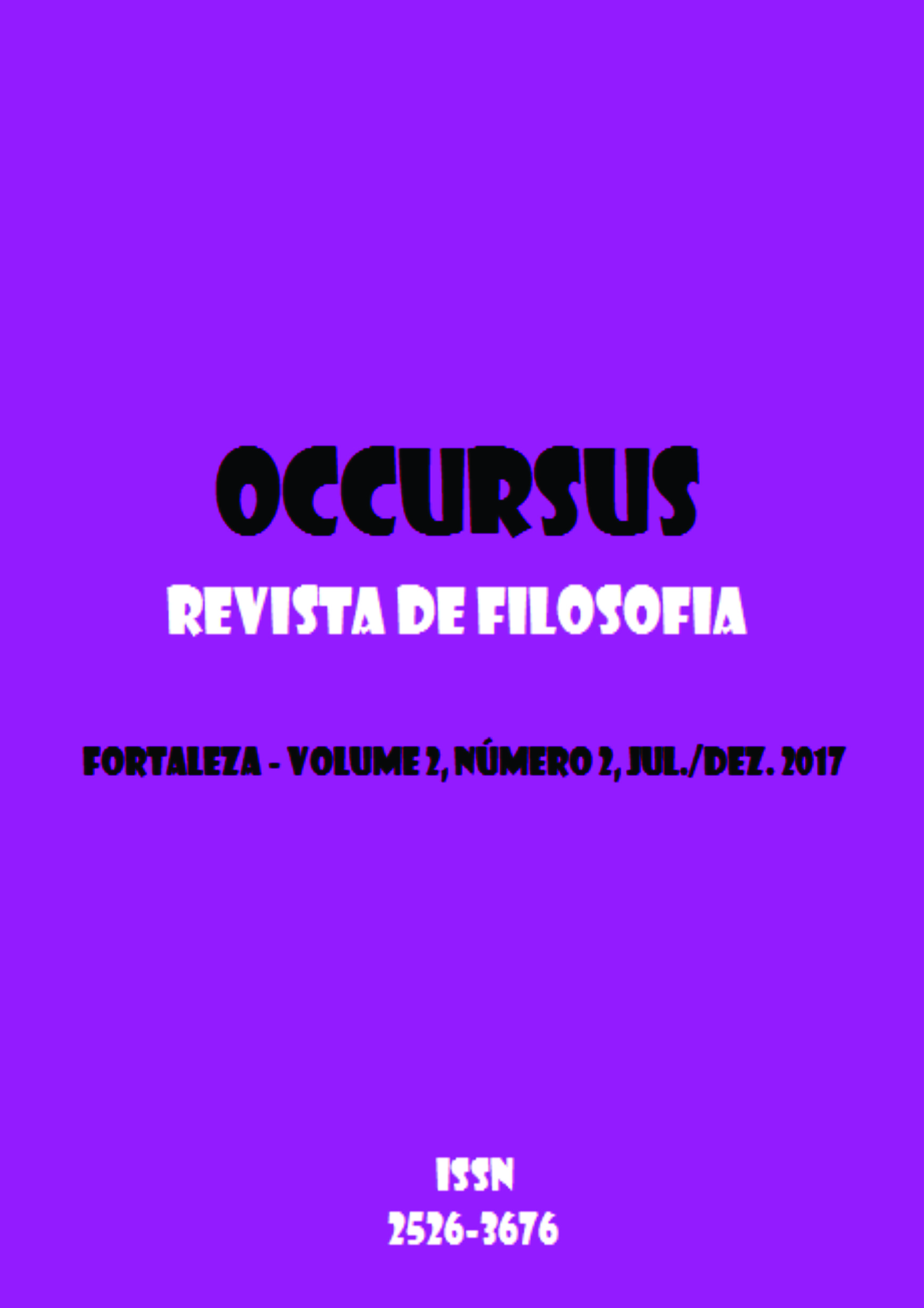Camus crítico de Sartre: filosofia da natureza, engajamento e liberdade no pós-guerra
Palavras-chave:
existencialismo, política, engajamento, determinismo, liberdade.Resumo
O trabalho visa apresentar as diferenças com relação às concepções de engajamento entre o filósofo franco-argelino Albert Camus (1913-1960) e o filósofo francês Jean-Paul Sartre (1906-1980), ressaltando a questão da concepção de historicidade e de liberdade. O filósofo africano põe em xeque a noção de situação e de liberdade de Sartre, levando em consideração também a liberdade do escritor engajado. Camus, influenciado pelo pensamento mediterrâneo, prezava primeiramente pela natureza antes da história, o que não significa que exclua a história como uma dimensão humana fundamental, mas sim afirma que ela não é tudo, pois a natureza a ultrapassa.
Referências
ARONSON, Ronald. Camus e Sartre. O fim de uma amizade no pós-guerra. Editora Nova Fronteira: São Paulo, 2007.
CAMUS, Albert. O avesso e o direito. Trad.: Valerie Rumjanek. 6ª ed. Rio de Janeiro: Record, 2007.
CAMUS, Albert. Primeiros Cadernos. Lisboa, Livros do Brasil, s/d.
LEOPOLDO, Franklin. Arte, Subjetividade e História em Sartre e Camus. Revista Olhar – Ano 2 – Nº 3. Junho/2000, 15p. Disponível em: <http://migre.me/gm78w>. Acesso em: 18 de Junho de 2013. 11:00h.
GERMANO, Emanuel. O pensamento dos limites: contingência e engajamento em Albert Camus. Tese de Doutorado - Faculdade de Filosofia, Letras e Ciências Humanas, Universidade de São Paulo, São Paulo. 2008.
Downloads
Publicado
Como Citar
Edição
Seção
Licença
Copyright (c) 2024 Leandson Vasconcelos Sampaio

Este trabalho está licenciado sob uma licença Creative Commons Attribution 4.0 International License.




